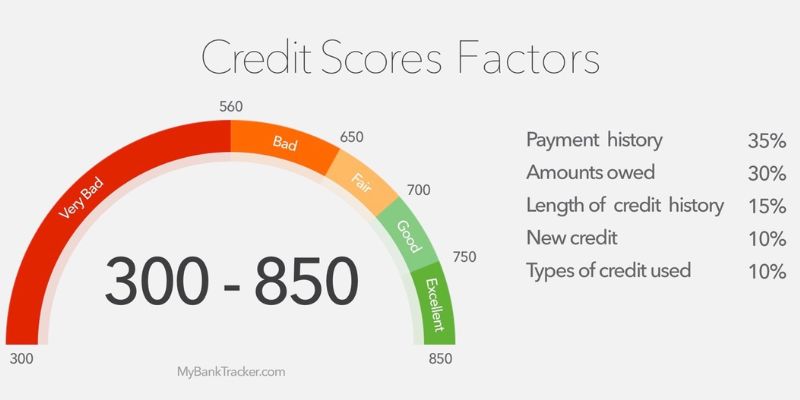Are you trying to decide between Equifax and TransUnion for your credit monitoring needs? With two different services available, knowing which one is the best fit for you can take time.
In this blog post, we will dive into a comprehensive comparison of these two services so that you can decide when to choose the right credit monitoring provider.
We'll look at everything from data accuracy and subscription costs to customer reviews and features. Read on to discover why TransUnion may be better for your financial well-being!
Understanding the differences between TransUnion and Equifax

1. Data Accuracy
When it comes to accuracy, TransUnion has a clear edge over Equifax. In recent years, TransUnion has invested heavily in its technology and data updates, ensuring it is up-to-date and reliable.
They also use cutting-edge algorithms to detect potential errors or inconsistencies in credit reports, allowing them to quickly identify and correct any issues before they become major problems.
On the other hand, Equifax's data accuracy is lacking due to outdated technology and slow response times when dealing with customer queries and disputes.
2. Subscription Costs
Both TransUnion and Equifax offer different tiers of subscription packages for consumers depending on their individual needs.
However, TransUnion's pricing is generally much more competitive than Equifax's, with basic packages starting at just a few monthly dollars.
Additionally, TransUnion offers discounts to customers who sign up for an extended subscription plan or bundle multiple services together.
3. Customer Reviews
TransUnion once again comes out on top when it comes to customer reviews. Their users tend to be overwhelmingly positive about the service they receive, citing features like easy-to-understand credit reports and helpful support staff as being particularly impressive.
In comparison, many customers have complained about Equifax's slow response times and lack of personalized customer service.
4. Features
Both companies offer a wide range of features that can help to protect and improve your credit score. However, TransUnion's features tend to be more extensive, with options for monitoring identity theft, setting up fraud alerts, and accessing real-time credit reports. Equifax doesn't offer these services as part of their standard packages, meaning you may have to pay extra for access.
What Exactly Are Credit Scores?

Credit scores are numerical representations of an individual's creditworthiness. They give lenders, creditors, and other financial institutions a snapshot of the borrower’s likelihood to repay their debts.
Credit scores are based on information in an individual's credit report generated from financial activity such as loan applications, payment history, and past delinquencies. The higher the credit score, the better it looks to potential lenders and creditors.
In summary, when comparing TransUnion vs. Equifax for your credit monitoring needs, TransUnion offers superior data accuracy, competitive pricing, positive customer reviews, and comprehensive features - making them the clear choice for ensuring your financial well-being is secure.
Why are my TransUnion and Equifax credit scores different?
It’s not uncommon for TransUnion and Equifax credit scores to differ slightly, even when looking at the same individual's credit report. This can be attributed to all three major credit bureaus (TransUnion, Equifax, and Experian) using their own proprietary algorithms and data sources to calculate an individual’s credit score.
Therefore, each bureau may arrive at a different result based on how it interprets the individual’s financial activity. Disc discrepancies in information reported by creditors or lenders across the different bureaus are also possible.
To ensure accuracy, it is important for consumers to regularly review their reports from all three bureaus.
TransUnion vs. Equifax: How Are Scoring Models Calculated?
One of the most important factors to consider when deciding between TransUnion and Equifax is how their scoring models are calculated.
Both companies use different algorithms and methods for assessing creditworthiness, so it's important to understand the differences to make an informed decision.
TransUnion uses a proprietary model called VantageScore, which considers information such as payment history, total debt owed, available credit lines, and more. This model relies on predictive analytics to assess your risk level and assign you a score ranging from 300-850 (the higher, the better).
Equifax also has its proprietary score called BEACON Score, which evaluates various factors from payment histories to open accounts. The BEACON Score ranges from 300-850 but is calculated differently than TransUnion's VantageScore. Equifax also uses a different method of assessing risk, which may be better suited for certain types of credit profiles.
Tips for monitoring your credit with TransUnion & Equifax
-Understand the Different Services Offered
Before deciding between TransUnion and Equifax, it is important to understand the different services that each provides. TransUnion offers various credit monitoring services, such as daily credit monitoring, fraud alerts, and VantageScore 3.0 credit report access.
Equifax also provides daily credit monitoring, offering more in-depth identity protection services, including dark web scanning and 24/7 identity restoration support.
-Look at Data Accuracy
When deciding between TransUnion and Equifax for your credit monitoring needs, it is important to consider the accuracy of each service’s data.
According to customer reviews, TransUnion has been shown to provide more accurate information than Equifax when reporting on late payments or other negative items on a person’s credit score.
This makes TransUnion a better choice for anyone looking to monitor their credit and ensure their data is accurate.
-Compare Subscription Costs
Another important factor to consider when choosing between TransUnion and Equifax is the cost of their subscription plans. TransUnion’s basic credit monitoring plan starts at $19.95 per month, while Equifax’s is slightly more expensive at $24.99 monthly.
For those who want additional features like dark web scanning or identity restoration support, Equifax may be the better choice since it offers these services for a lower price than TransUnion.
-Check Customer Reviews
When weighing your options, don’t forget to read customer reviews of both services before deciding.
Reviews can provide insights about the customer service experience, feature differences between plans, and other important details you may need to learn.
Many customers have reported positive experiences with TransUnion’s customer support and data accuracy, which make it a great option for anyone looking for reliable credit monitoring.
-Understand Features
Finally, when choosing between TransUnion and Equifax for your credit monitoring needs, understand what features each service offers.
For instance, TransUnion offers users access to their VantageScore 3.0 credit report, while Equifax provides dark web scanning and 24/7 identity restoration support. Knowing the features available will help you decide which is best suited for your financial well-being.
FAQs
Which is more accurate, TransUnion or Equifax?
TransUnion is generally more accurate than Equifax, with fewer errors reported in their credit reports. However, it's important to regularly review both services for accuracy.
What features does TransUnion offer?
TransUnion offers a range of features, such as triple-bureau monitoring, identity theft protection & insurance, and unlimited access to your credit report and score. Additionally, they provide personalized recommendations for improving your financial well-being.
What subscription plans are available?
TransUnion offers three subscription plans – Choice, Preferred, and Premium. Each plan includes access to your credit score & report, alert notifications, and expert advice. The higher tiers also add features such as identity theft protection & insurance.
Conclusion
Choosing between Equifax and TransUnion for credit monitoring can be difficult. Our comprehensive comparison found that TransUnion is the better choice due to its wider range of features, more accurate data reports, lower cost subscriptions, and higher customer satisfaction rates. Make an informed decision and begin taking steps today toward bettering your financial future with TransUnion!

What To Do When You Overcontribute to Your 401(k) Plan (k)

PenFed Credit Union's 2022 Mortgage Review

A Detailed Guide About the Top Alternatives to a Co-Signer

Debt Consolidation and Debt Settlement

How to Execute a Balance Transfer with American Express?

Waiver of Medical Insurance

Traditional IRA

What Exactly Is a Conservatorship? When Does It Activate

Get To Know What Income Level is Considered Rich

8 Common Car Insurance Myths

Period Costs vs. Product Costs: An Overview
